Table of Contents
My First Experiences in Learning Languages
My love for foreign languages started when I was 17 years old (1996). I failed to pass a final exam in a school course for the first time in my life. It was French. I only studied the night before the exam. Otherwise, I ignored my homework and barely showed up to class.
I got angry and started to study French because I wanted to get a full score next semester when I would be retaking the class. I also asked the teacher for the tape she played in class with the dialogues in the textbook we used and started to listen to the tape on my cassette player (Walkman) all the time. Next time I got 10 out of 10, a full score. More importantly, I discovered that learning languages was fun.
In the following years, I took all the French I could in upper secondary school (seven semesters of French), and I also went for four summers to France to learn French (two of the summers, I went to summer schools for foreign learners of French. The downside of such schools is that you spend so much time with other learners during your trip, and you will not interact with them in the target language unless it is your strongest common language).
Additionally, a few years later, I took a two-year break from studying law, enrolled in French at the University, and resumed my law studies after four full university semesters of French as the only subject of my studies.
How I Got My Start in Arabic
In 2006 I started to learn Arabic. It was because I found the letters/script beautiful, it was widely spoken, and I wanted to relive the joy of learning a language I had discovered when learning French. But I wanted a greater challenge. I didn’t want to study something like Spanish because it would be like repeating the experience of learning French (or German, which would be like learning Danish again). I wanted to achieve something more difficult.
Long story short, after reading a lot of Arabic self study books (started with MSA and Egyptian Arabic), practicing with any Arabic speaker that came my way, who were mostly from Morocco (which made me buy and read two books on the Moroccan dialect) which was of course the least practical dialect to get exposure to, listening to everything from Arabicpod.net, every single episode in all levels, (they were big once in the online learning Arabic scene), watching endless amount of Arabic content on Youtube, going to Jordan to study by myself in September, October, and November of 2013 (and speak only Arabic (fairly broken) during the stay, acting like I didn’t know English), renting an apartment with a Libyan for an entire year, and an Egyptian for another (obviously jumping through all possible hoops to get the chance to practice), working as a specialist with asylum seekers in Iceland where I needed to use Arabic at work, and more, I still felt I hadn’t reached the place where I was satisfied with my level.
Extensive Reading
A few months ago, I read about the concept of “extensive reading” as a technique to improve. I don’t think any particular method or technique is the best way to learn, but it seemed about right to me that I was at a place where I needed to start reading much more.
According to what I read about Extensive Reading, you need to read as much as possible because it is more efficient than watching movies. (For instance, in movies, there is a lot of dead time where no one is talking.) Reading was to be carried out for an extended period and frequently. The material was supposed to be diverse and easy for you to read in order for the experience to be as similar as possible to reading in a language you were fully proficient in or your native language. If the material were too hard, it wouldn’t be extensive reading in the sense that was meant.
So, I started to find as much diverse Arabic material as possible that I could read for pleasure and without too much effort. I planned to print it all out … collect it in binders, and then start reading when I had gathered enough texts.
I had two problems. Firstly, I couldn’t find enough such materials. Secondly, most of the texts that I found interesting enough and easy enough to print out and put into the binders were in Standard Arabic (obviously since Standard Arabic is the written form of Arabic). I didn’t want to devote nearly all my study time to Standard Arabic. I wanted exposure to informal Arabic too.
Lingualism’s Arabic Readers Series
I bought and printed and put the Palestinian and Jordanian stories from Lingualism Levantine Arabic Readers into one of my binders to be read later.
I had been reading for some time (Arabic poetry by Mahmoud Darwish, re-read quickly books that I had plowed through slowly with a dictionary many years ago, traditional stories for children, Human Rights charters that I knew already in and out in English or Icelandic, some books from the Bible (since they have full vowel markings), an Egyptian novel called Hilm Amira (a crime story that is in a very simple language) and so on and so on.
Then I arrived at the stories from the Levantine Arabic Readers from Lingualism in my binders. Honestly, I expected them to be dull… because they are stories made for learners. So, I didn’t feel such material was authentic enough. But they really surprised me. They had twists and plots and surprises. I had printed out the Arabic text of the stories, but since there was a handy translation available, I skimmed the English versions of the stories and checked the meaning of words I didn’t know.
Since I enjoyed the stories much more than I expected, I ended up buying all the Levantine stories and all the stories from the Egyptian and Modern Standard Arabic collections… the Standard Arabic version of stories 1 to 3, and the Egyptian version of the stories from 4-15, all five Tunisian stories, as well as Romeo and Juliet in Standard Arabic.
This has solved, for the moment, the problem of not having enough material in general and not enough in informal Arabic in particular (adding these to what I had already gathered from here and there on the web made quite a collection). The goal of my Extensive Reading routine is to read as much as possible. The emphasis is on quantity. I figured that the quantity of what I have read in English through the years and the frequency of exposure to English (on social media, every time I use the internet, books, and more) is the underlying reason behind my proficiency in English. My goal is mimic this with Arabic. I want to read Arabic frequently, and a huge quantity of it (like I read English frequently and in large volumes). Unfortunately, reading something like a novel by Naguib Mahfouz is still something that I would do too slowly. I would be finishing very few pages per hour. On the other hand, I can finish an entire story from the Lingualism Arabic Readers in an hour, which serves my quantity-related goals.
Dealing with Varieties of Arabic
I want to say a few words about reading such different varieties of dialects (Tunisian could be considered a different language than Egyptian or Levantine).
When I started to learn Arabic, my aim was to speak Egyptian Arabic. When I wanted to go to Egypt, after many years of self-study, the political situation was not too good, and there were curfews in place in the evenings, etc. That’s why I went to Jordan, which was a last-minute decision. I soon realized that I caught up with Jordanian fast. After I came home, Iceland was flooded with Syrian refugees, so I was glad I had exposure to the Jordanian dialect. For a couple of years, 90% of all conversations I had in Arabic were with Syrians.
These days I am more comfortable with Levantine than Egyptian, but I still speak with two Egyptian friends regularly and with one of them exclusively in Arabic. Since I speak French, and practiced Arabic at the beginning with Moroccans, had a flatmate from Libya for a long time, listen to Moroccan and Tunisian rap daily (I have bad taste in music, by the way), there is not a big gap between how well I understand Arabic from Egypt and the Middle East versus Arabic in the Maghreb region.
Still, the Maghrebi dialects are harder for me, and I don’t intend to speak Maghrebi. That’s why I don’t care at all when I come across words in the Tunisian stories that I don’t understand. I just think, “This is something Tunisian I haven’t seen before,” and ignore it as long as the context of the story isn’t getting blurry. I don’t try to memorize any vocabulary specific to the Maghreb, and with respect to those dialects, I am only aiming for passive skills. But many things are the same, and they add up to my quantity count of reading Arabic. The Maghrebis also sometimes use words from Standard Arabic, whereas speakers of the eastern dialects don’t.
Listening to Improve Pronunciation
I also want to say a few words about my listening technique. (I listen to all the stories to get used to the pronunciation of the different dialects, and I have the audio version of most of the things I have collected in my binders from elsewhere as well).
I have always felt that pronunciation is essential to proficiency in any language. After all, a language is fundamentally a string of sounds! From the start, I was never shy at using the specific Arabic sounds (ق, ح, ع, ض etc.) and I practiced them a lot. I would exaggerate them rather than shy away from them.
Since listening to the French tapes repeatedly in upper secondary school gave such good results, I carried the habit of constant listening with me into Arabic. I practiced pronouncing the sounds and listened to them a lot as I was listening to Arabic. This is, of course, necessary in order to know well what you are aiming for when pronouncing (and, of course, to understand when spoken to).
When I listen to Arabic during my study time, I often do it in the following manner: I follow the sounds and only the sounds in my mind. I am listening to syllables. I am not trying to translate anything in my head. I am not doing any analysis. I am not making any grammatical calculations or trying to remember any rules, repeating any words to retain them, remembering them, or thinking any thoughts. I just listen to every syllable.
My goal is to hear every syllable, and that’s it. I am listening to sounds. Even though I am not aiming at or focusing on the lexical content, I still get it as a by-product or inadvertently. The human mind is constantly busy, so from time to time, my focus will stray, and I will start to think about what I will have for dinner or ruminate about something I shouldn’t have said to a co-worker at work, etc. I accepted a long time ago that this is unavoidable. When this happens, I don’t get grumpy with myself. I just notice it, and then I resume listening to the sounds playing in my ears again like I am doing mediation, and the sounds are a mantra. If I start to get annoyed at myself for losing focus, I waste time and energy that I could be using to listen. I also don’t waste time with rewinding or playbacks.
These listening exercises are not at all in the spirit of extensive reading, per se. It is a different activity. This is something that I have done from the beginning with Arabic.
My strongest skill in Arabic is pronunciation – and I think it is partly tied to my listening exercises. I was working as a tour guide last Easter in Jordan. The local guide I worked with for 12 days told me that the strongest side of my Arabic was my pronunciation by a wide margin. Like I said before, that is my opinion also. Therefore, pronouncing the Arabic sound with exaggeration (at first) and listening and listening to Arabic sounds have worked well for me.
Conclusion
To return to the topic of extensive reading, I would like to tell you about the improvements I have noticed so far. Since I took up this extensive reading approach just a few months back, I have received some comments from people who I interact with in Arabic saying that my Arabic is improving, developing, or evolving ( تطوير ). This confirms my feeling that I am in the process of surpassing a plateau (I haven’t gotten comments like these in a very long time).
The sheer amount of text I am reading has caused many grammatical functions to come to me more naturally (I find myself correcting mistakes in text messages on WhatsApp that I hadn’t noticed before, for example). My spelling is what has improved the most. Some vocabulary that used to be only passive has become part of my active vocabulary, and I have a better sense of using correct collocations. Thirty-five stories from the Readers provided by Lingualism and the story of Romeo and Juliet have been a highly important part of my new extensive reading journey so far.


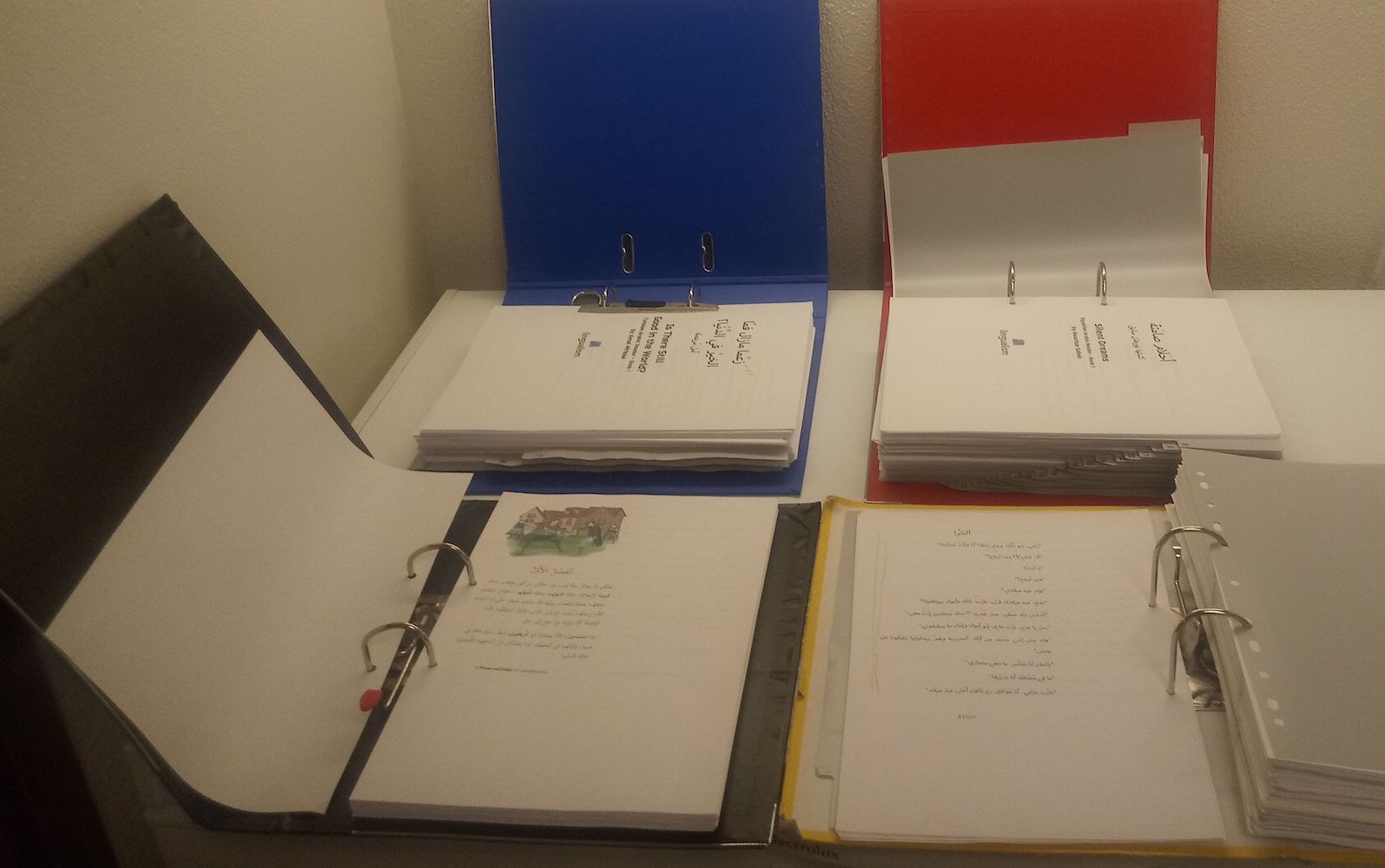
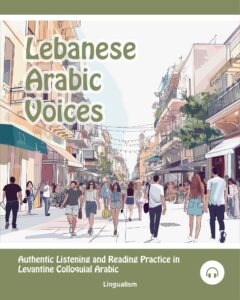

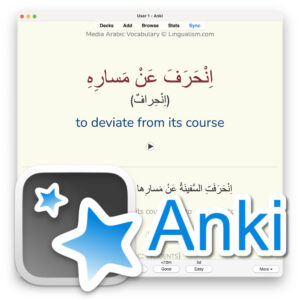
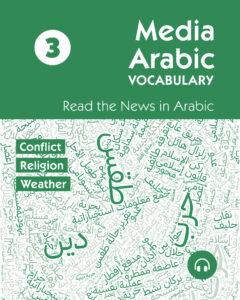

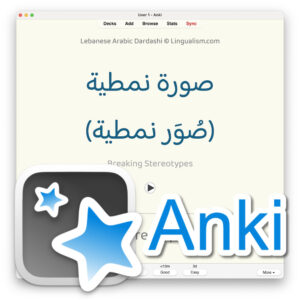
This is inspiring and a useful approach. Thanks for sharing Sindri
Fascinating, thanks Sindri. My young children have to read one short book every evening after school (the school sends the book home with them) and I couldn’t help reflecting on the progress they were making and thinking that I should be doing the same with Arabic. I am reading عمارة يعقوبيان at the moment and, like your experience with Mahfouz, I make slow, intensely enjoyable, progress by reading a chapter straight through, then again with a dictionary, then again writing the new words into my handwritten vocabulary book. But I will try your method of extensive reading of easier material, unencumbered by dicationaries and vocalbulary books, because I am confident it will have a more marked effect on my progress.
Hi Dominic. I feel like I know a lot about Egyptian society just from reading عمارة يعقوبيان even though I have never been there. I do a lot of handwriting too. I write down vocabulary by making an entry that consists of the word, translation, and then I write a sentence using the word from where I came across it, and I write the word in red in the sentence, whereas the rest of the sentence is in black (or a different color than red at least)
How is your extensive reading of easier material going?
I made a Youtube video just few days ago, where I speak about the fundamentals of European Union law in Arabic. I guess there’s not a high demand for the subject, but I wanted to record it anyway. It is a form of practice I haven’t tried before:
https://www.youtube.com/watch?v=triBF3BEZtA&t=325s